Why Strategy Games Are Perfect for Building Critical Thinking Skills
But have you ever wondered why strategy games are so effective at honing critical thinking skills? In this article, we’ll explore how strategy games help build essential skills like problem-solving, decision-making, and adaptability, making them perfect tools for fostering mental agility. And if you’re a fan of strategy games, you might just be learning more than you think!
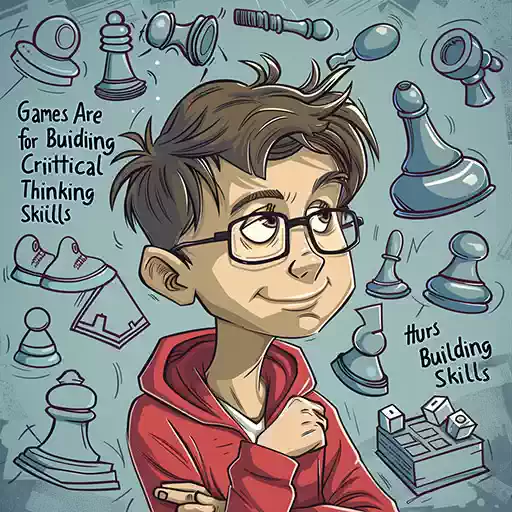
What Are Strategy Games?
Before diving into the benefits, let’s quickly define what we mean by strategy games. Strategy games are a genre of games where players are required to plan, manage resources, and make decisions in real time or turn-based scenarios. These games range from military tactics and economic management to world-building and exploration.Types of Strategy Games
There are different types of strategy games, each offering unique challenges:- Real-Time Strategy (RTS): Games like Starcraft or Age of Empires where players must make decisions and react quickly as the game progresses in real-time.
- Turn-Based Strategy (TBS): Games like Civilization where players take turns making strategic decisions, giving them time to think through each move.
- Tower Defense: A sub-genre where players defend their territory by placing defensive structures in strategic positions.
- 4X Strategy: Explore, Expand, Exploit, Exterminate—this genre includes games like Civilization and Endless Legend, where the goal is to build an empire through exploration, resource management, and conquest.
Each of these types of games challenges players to think critically, plan ahead, and make decisions based on incomplete information—skills that are essential in real life, too.
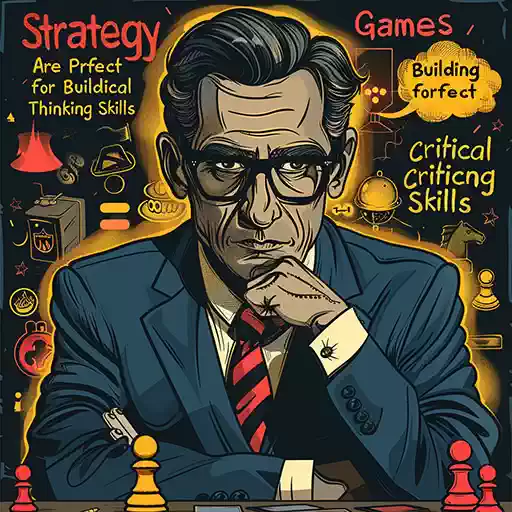
How Strategy Games Sharpen Critical Thinking Skills
Now that we know what strategy games are, let’s talk about how they can enhance your critical thinking skills. At their core, strategy games require you to think ahead, adapt to changing situations, and weigh the pros and cons of your decisions. Here’s how they do it.1. Problem-Solving Under Pressure
One of the key aspects of strategy games is that they constantly throw new problems at you. Whether it's an enemy attacking your base in Starcraft or a sudden famine in Civilization, you’re forced to solve problems as they arise. Unlike other types of games where you might simply have to react to what's in front of you, strategy games demand that you identify potential problems before they become critical and devise solutions on the fly.Multitasking and Prioritization
In many strategy games, you’ll be juggling multiple tasks at once. For example, in an RTS game like Starcraft, you’ll need to manage resources, build units, scout your opponent’s base, and plan an attack—all simultaneously. This forces you to prioritize what’s most important and allocate your limited attention and resources effectively.
This mirrors real-life problem-solving scenarios where critical thinkers are able to look at complex issues, break them down, and figure out the best course of action based on available resources.
2. Decision-Making with Incomplete Information
In strategy games, especially those with multiplayer components, you rarely have access to all the information you need to make a perfect decision. You might not know where your opponent’s forces are or whether they’re planning an attack. You could also be unaware of hidden resources on the map.This teaches a valuable lesson: making decisions with incomplete information. Critical thinkers are often faced with situations where they must act without having all the facts. Strategy games encourage players to weigh risks, consider potential outcomes, and make educated guesses—all essential components of effective decision-making.
Risk Assessment
Every action in a strategy game comes with inherent risks. Will attacking now leave your base defenseless? Should you build more troops or invest in technology upgrades? Assessing the potential risks and rewards of your decisions is a key aspect of critical thinking, and strategy games provide a safe yet challenging environment to practice this skill.
3. Adaptability and Flexibility
No matter how well you plan, things often don’t go as expected in strategy games. Your opponent might pull off a surprise attack, or you could run out of vital resources at a crucial moment. This forces you to adapt. Strategy games teach you to stay flexible, adjust your approach, and come up with creative solutions when your initial plans fall apart.Handling Failure
Failure is an inevitable part of strategy games. You might lose a battle, mismanage resources, or fail to complete a mission. But rather than being a setback, failure in strategy games is a learning opportunity. Each defeat offers valuable insights that can help you refine your strategy for the next attempt. In real life, being adaptable and learning from failures is a hallmark of strong critical thinkers.
4. Long-Term Planning and Strategic Thinking
Critical thinking isn’t just about solving immediate problems—it’s also about planning for the long term. In strategy games, you’re often required to think several steps ahead. You have to anticipate future events, whether it’s an impending invasion in a war game or an economic downturn in a resource management game.Players must consider how their actions today will affect their success later on. For example, building a strong economy early in Civilization can provide the resources needed for military conquest or technological supremacy later in the game. The ability to think long-term and set achievable goals is a crucial component of critical thinking in both games and real life.
Balancing Short-Term and Long-Term Goals
A key challenge in strategy games is balancing short-term needs with long-term goals. Do you focus on building an army now to defend against immediate threats, or do you invest in infrastructure for long-term growth? This delicate balance forces players to weigh immediate satisfaction against future rewards, sharpening their ability to make thoughtful, strategic decisions.
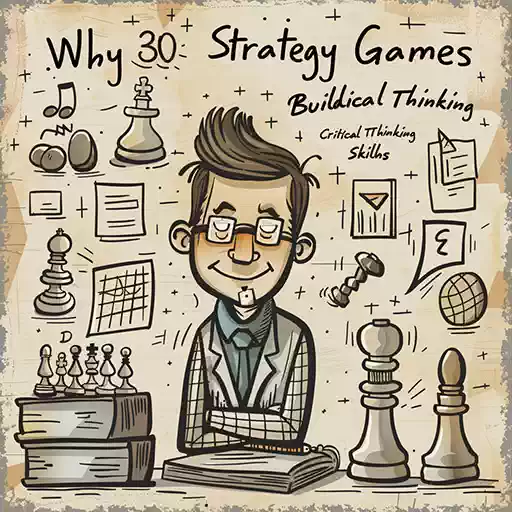
The Benefits of Strategy Games Beyond Gaming
While strategy games are undeniably fun, the benefits they offer go far beyond the gaming world. The critical thinking skills developed through these games can be applied to various aspects of life, from personal decision-making to professional problem-solving.1. Improved Academic Performance
Studies have shown that playing strategy games can improve cognitive functions like memory, attention, and reasoning—all of which contribute to better academic performance. Many schools and educational institutions are even incorporating strategy games like chess into their curricula to help students develop critical thinking skills.2. Professional Applications
In the workplace, the ability to think critically, solve complex problems, and make sound decisions is highly valued. Employers look for individuals who can assess situations, adapt to change, and think strategically. Regularly playing strategy games can give you a mental edge in tackling professional challenges, making you a more effective problem-solver and leader.3. Personal Growth and Decision-Making
From choosing a career path to managing personal finances, life is full of decisions that require careful thought and planning. The skills learned through strategy games—evaluating risks, anticipating outcomes, and planning ahead—can help you navigate these decisions more effectively. Whether it’s managing your time, finances, or relationships, the strategic mindset fostered by these games can improve your personal decision-making processes.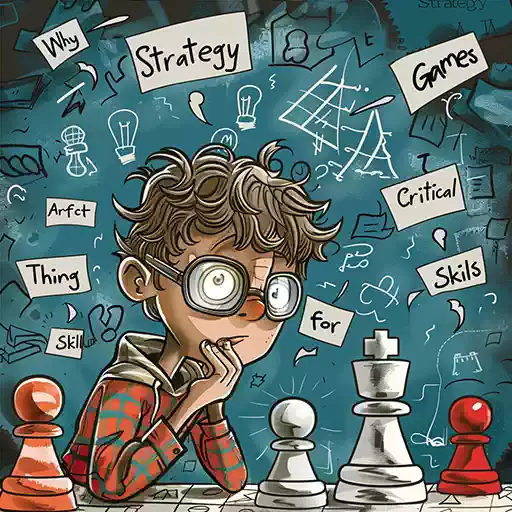
Conclusion: Why Strategy Games Are the Ultimate Critical Thinking Tool
So, why are strategy games perfect for building critical thinking skills? Because they put your mind to the test in a fun, engaging way. They challenge you to solve problems, make decisions under pressure, adapt to changing circumstances, and think both short-term and long-term—all skills that are crucial for success in both gaming and life.If you’ve ever questioned whether those hours spent playing strategy games were worthwhile, rest easy knowing that you’re sharpening your mind while having a blast. So, the next time you load up your favorite strategy game, remember: you’re not just playing—you’re training your brain for life’s toughest challenges.
28 December 2024
More articles
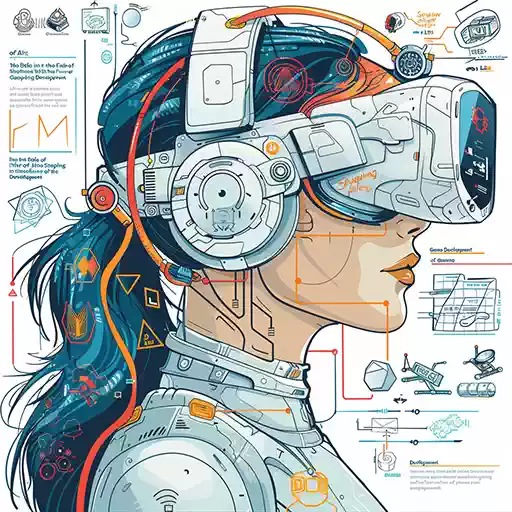
In recent years, artificial intelligence (AI) has evolved from being a niche concept into a powerful tool that is transforming various industries. The gaming world is no exception. From designing smarter non-playable characters (NPCs) to creating immersive worlds and streamlining game development processes, AI is fundamentally changing how games are made and experienced. But what exactly is the role of AI in shaping the future of game development? How is it influencing creativity, gameplay, and production? Let’s explore these questions in-depth.
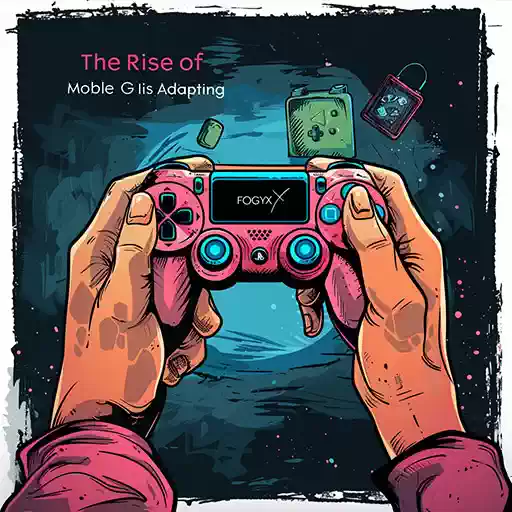
Mobile gaming has grown from a simple pastime into a global phenomenon. From casual puzzle games like Candy Crush to competitive multiplayer experiences like PUBG Mobile, mobile gaming is now at the forefront of the gaming industry. The convenience of gaming on-the-go, coupled with advances in mobile technology, has transformed how and where we play games. This shift is not only reshaping the industry but also influencing the way game development studios like FOGYX approach game design and player engagement.
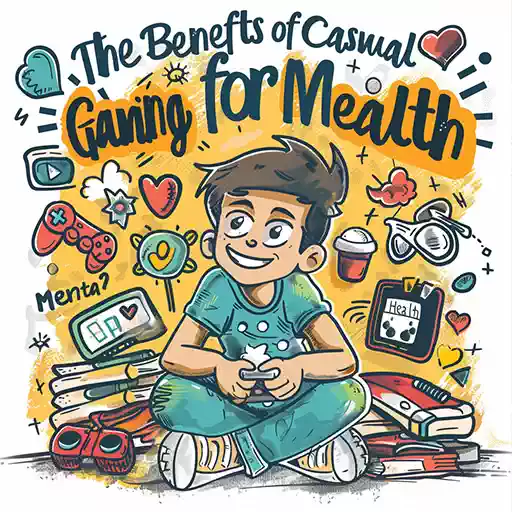
In today’s fast-paced world, finding ways to unwind, relax, and de-stress is more important than ever. People often turn to hobbies like reading, exercising, or watching TV to clear their minds, but there’s another powerful tool for mental relaxation that’s been gaining traction in recent years—casual gaming. Whether it’s a quick puzzle game during your lunch break or a relaxing farming simulator in the evening, casual gaming has proven to offer more than just entertainment.
all articles
